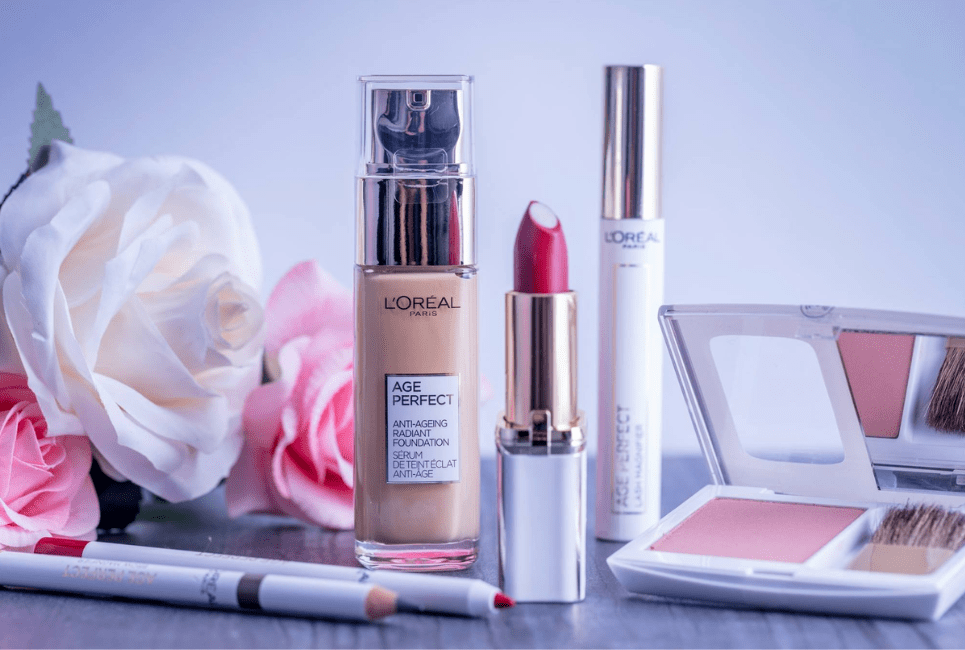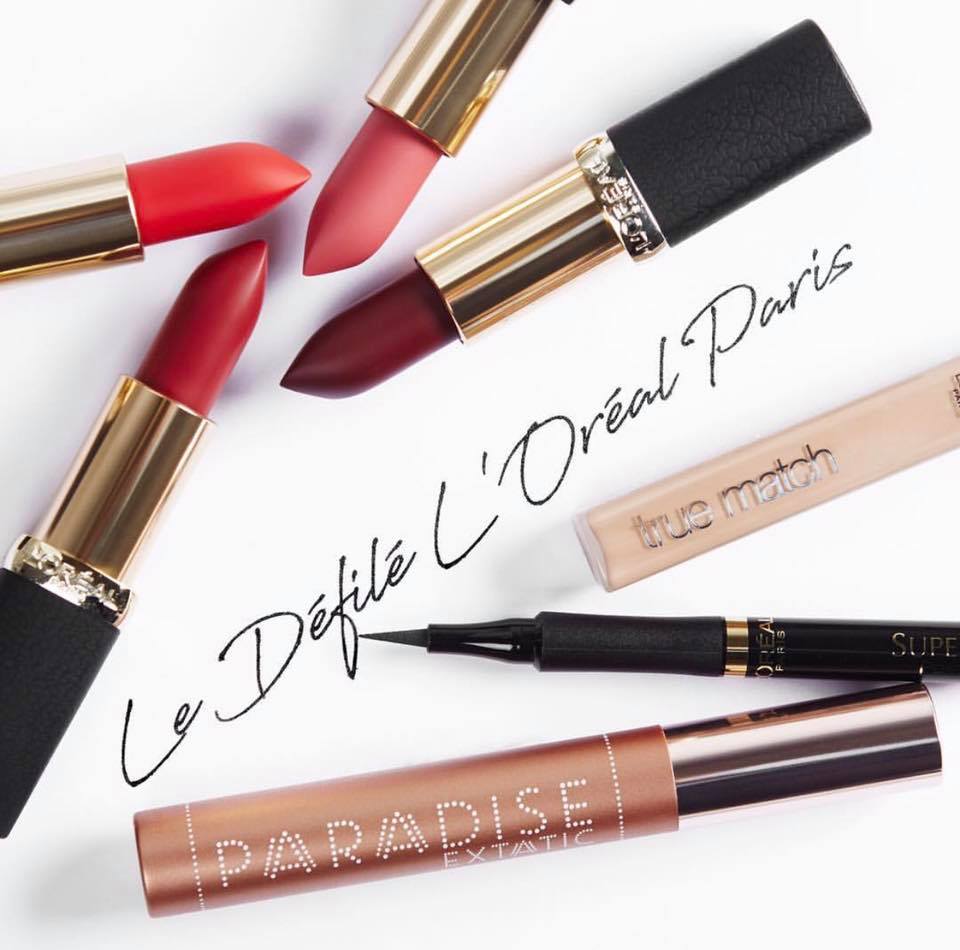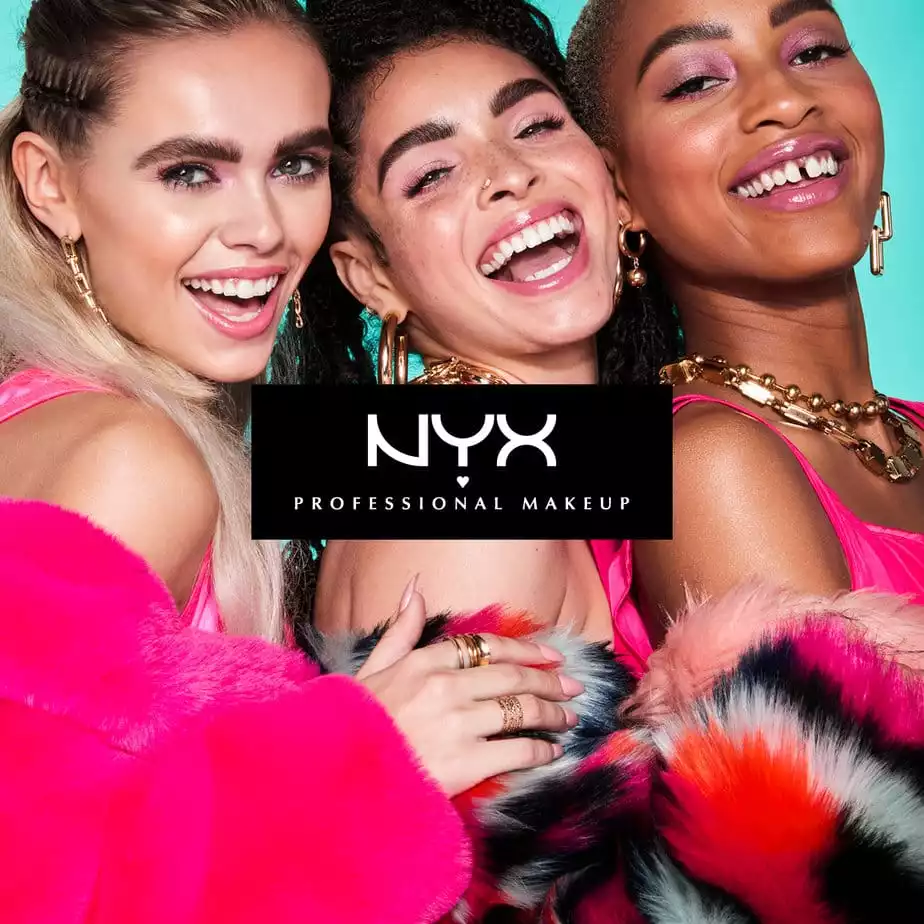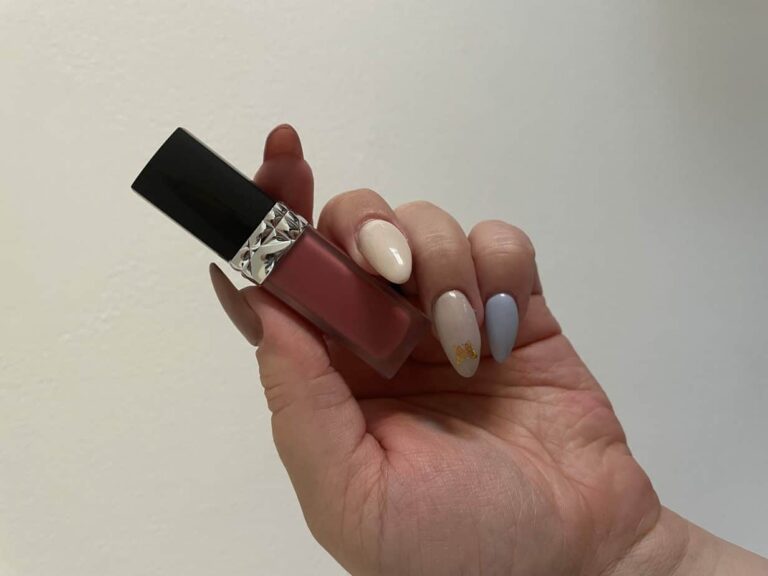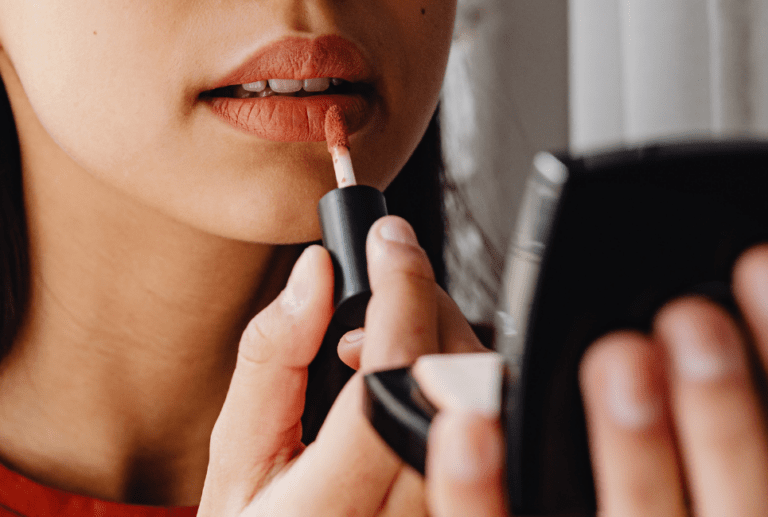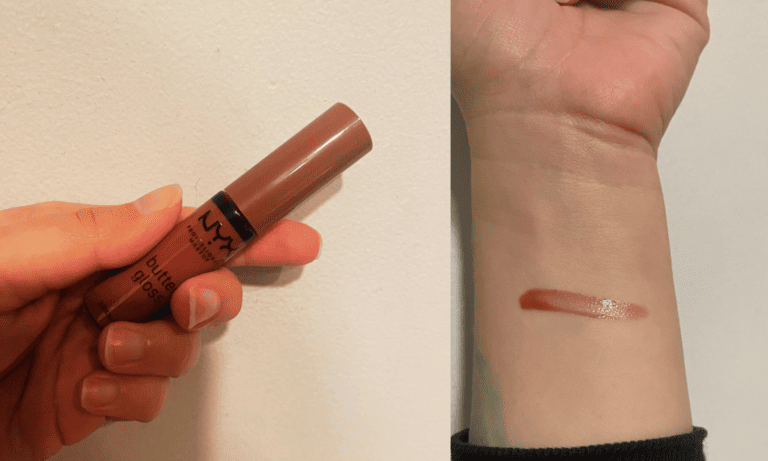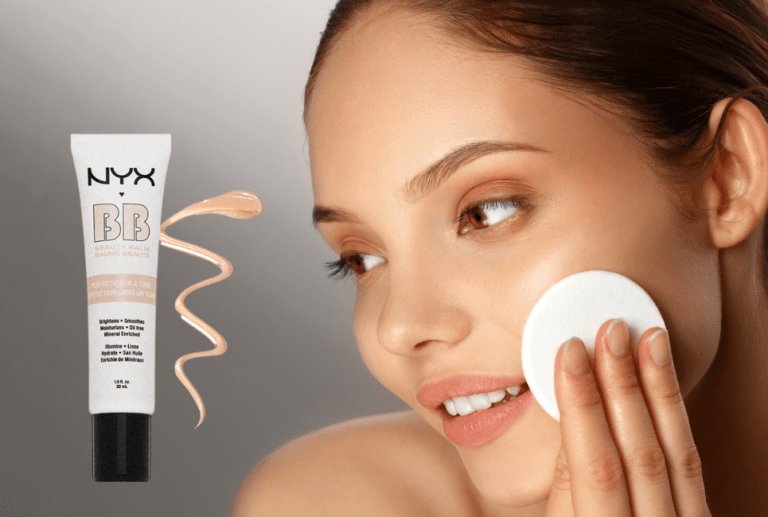Is L’Oreal Cruelty Free: The Truth Behind This Beauty Powerhouse
- How to Find the Best Concealer for Eyebrows: Highlighting and Defining Your Brows - October 7, 2023
- Tarte Maneater Mascara Review: Is This Mascara Worth It? - October 7, 2023
- Why Does My Makeup Look Dry And What Can I Do About It? - October 7, 2023
L’Oreal is one of the biggest beauty powerhouses in the world. Not only do they sell a myriad of makeup, skincare, and hair products, but they also own some of the biggest modern beauty brands such as NYX.
Since many of its subsidiaries are cruelty-free, you probably wondered about L’Oreal’s cruelty-free status. I definitely have, as I have been digging into this topic for several months. I previously thought L’Oreal was cruelty-free since they stated on their website that they haven’t tested on animals for decades. Unfortunately, these claims are misleading. And L’Oreal’s cruelty-free status is more complex than I even thought.
Is L’Oreal cruelty-free? Here are the facts.
Bottom line up front:
L’Oreal isn’t cruelty-free. Even though they don’t test their products themselves on animals, they still sell in China. Chinese animal testing laws changed in 2021, but hair dye still requires animal testing. L’Oreal makes hair dye, so their products are still tested on animals.
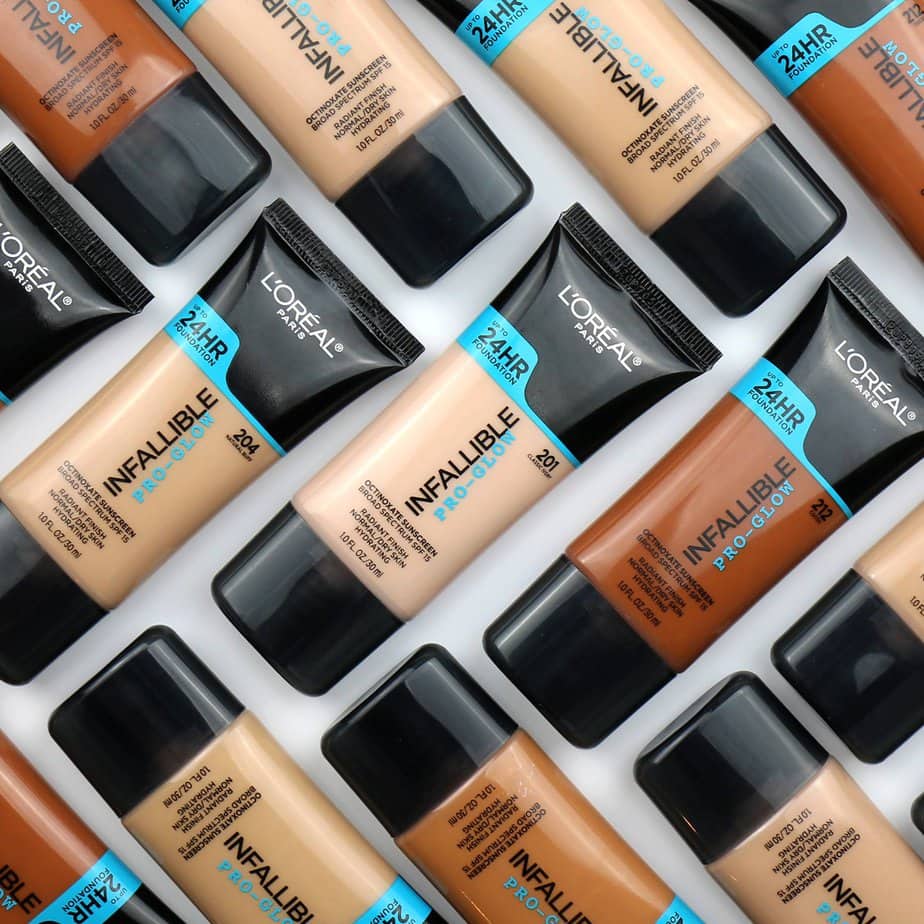
Is L’Oreal Cruelty-Free?
Short answer: no. Long answer: well, it’s tricky.
As with many beauty brands, animal testing isn’t L’Oreal’s first line of defense. They have stated on their website that they use Episkin, which uses real skin cells to mimic real human skin. But if you read the fine print, they admit they sell their products in countries where animal testing may be required. It’s also unclear whether third parties or suppliers test on animals for them.
L’Oreal’s Statement on Their Website
For the longest time, I honestly thought that L’Oreal was cruelty-free based on this web page. L’Oreal explains that they haven’t tested on animals ever since 1989. Not only that, but they also say that they’re the pioneers in alternative testing methods and even work with other countries to provide these tests.
Seems okay, right? That’s what I thought for years. I actually discovered the truth recently, after getting into a conversation with some other cruelty-free beauty friends. They mentioned L’Oreal tested on animals and my response was, “wait! L’Oreal says on their website that they’re cruelty-free.” One of my friends retorted, “L’Oreal still sells its products in China.”
L’Oreal Sells Its Products in China
Before going into detail on this issue, I will briefly explain China’s new animal testing laws. China lifted the animal testing requirement for foreign beauty brands back in 2021, meaning most cosmetics and personal care products can be sold in China without the initial animal testing requirements.
However, “special cosmetics” will still need to be tested on animals. This includes hair dye. Since L’Oreal sells hair dye, these products will still require animal testing in China.
So, what’s the TL;DR response? L’Oreal has stated they don’t test their products on animals themselves. However, they’re allowing other countries to conduct animal testing for them.
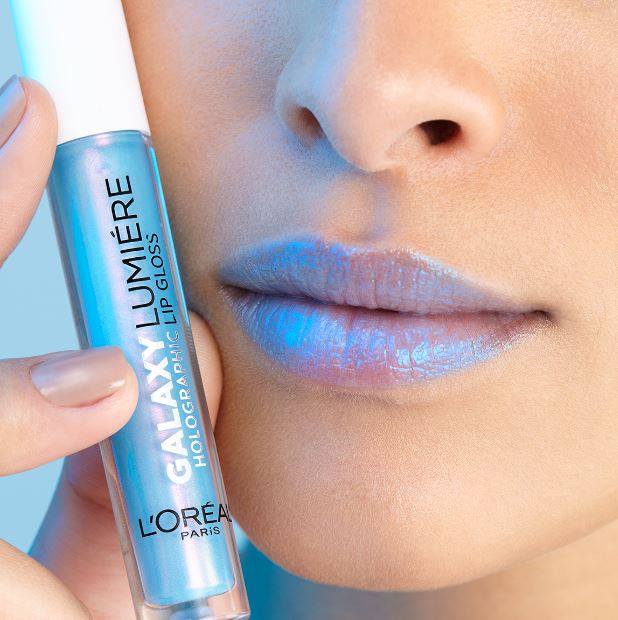
L’Oreal and Veganism
L’Oreal may offer some vegan products, but they’re not a certified vegan brand. However, this company isn’t cruelty-free, so it’s ill-advised that you continue buying its products.
L’Oreal Ethics
Regarding brand ethics, animal testing isn’t the only concern. You’ll want to buy from brands that use safe ingredients and don’t exploit workers.
Sustainability
If there’s one thing I will say in support of L’Oreal, they’re serious about sustainability. They source ingredients such as palm oil in a way that has little impact on the environment and reduces dangerous living environments for locals. They’re also pretty transparent about how and where they source their ingredients.
Natural and Organic
L’Oreal makes no claims that its products are organic. However, they do carry some products that contain naturally-derived ingredients. L’Oreal lists these products here. Some of the brands that L’Oreal owns create more natural beauty products. Garnier is one of the best examples.
Dangerous Ingredients
With that being said, do any L’Oreal products contain dangerous ingredients? It depends on the products. Some L’Oreal products contain parabens while others don’t. They also don’t claim that their products are free of dangerous ingredients, such as phthalates. That said, some L’Oreal products are non-comedogenic (meaning they won’t clog your pores).
I was curious and looked up L’Oreal on the EWG. This brand does have some products marketed as “clean.” The EWG gave these products a 1 rating, which means those products have a low risk of containing dangerous ingredients. Some of L’Oreal’s worst offending products include its hair dyes.
Where L’Oreal Is Made
All L’Oreal products are made in France. The brand currently has 11 factories in France, with its headquarters in Clichy, Hauts-de-Seine with another office in Paris. However, they source its ingredients from various parts of the world. L’Oreal also has international manufacturing plants, including five in the USA.
Supporting Brands That L’Oreal Owns
Sure, you may not buy from L’Oreal anymore. But L’Oreal owns various brands, many of which don’t test on animals. The beauty community’s big debate is whether you should continue supporting the brands that don’t test on animals. On one hand, many cruelty-free enthusiasts don’t support the subsidiaries, even if they are certified cruelty-free because they inadvertently support the parent company.
Looking to save on NYX Professional Makeup? Find promo codes and details here for offers such as free shipping, gift with purchases, and sitewide sales!
But others argue that L’Oreal and other parent companies don’t fully own the subsidiary. For example, L’Oreal owns NYX. However, NYX manages its company independently, mainly using L’Oreal for product production.
Here are some of the brands that L’Oreal owns:
- Atelier Cologne
- African Beauty Brands
- Biotherm
- Biolage
- Carita
- Cacharel
- Clarisonic
- CeraVe
- Diesel
- Decleor
- Garnier
- Essie
- Guy Laroche
- Giorgio Armani
- House 99 by David Beckham
- Helena Rubinstein
- Keratase
- It Cosmetics
- Lancome
- Kiehls
- La Roche Posay
- Maison Margiela
- Magic
- Maybelline
- Matrix
- Niely
- Mizani
- Paloma Picasso
- NYX
- Pureology
- Proenza Schouler
- Redken
- Ralph Lauren Fragrance
- Sanoflore
- Roger & Gallet
- Shu Uemura
- Seed Phytonutrients
- Urban Decay
- SkinCeuticals
- Viktor & Rolf
- Vichy
- YSL Beauty
- Yue Sai
- Youth to the People
Spend More, Save More: Get Free Shipping on Orders $65+, using code FREESHIPPING.
Cruelty-Free Alternatives to L’Oreal
Are you pretty bummed? I know I am! Not only do I like L’Oreal products but they own some of my favorite brands. Fortunately, there are numerous alternatives to L’Oreal. All of these companies are cruelty-free. If they have a parent company, that company is also certified cruelty-free.
Milani
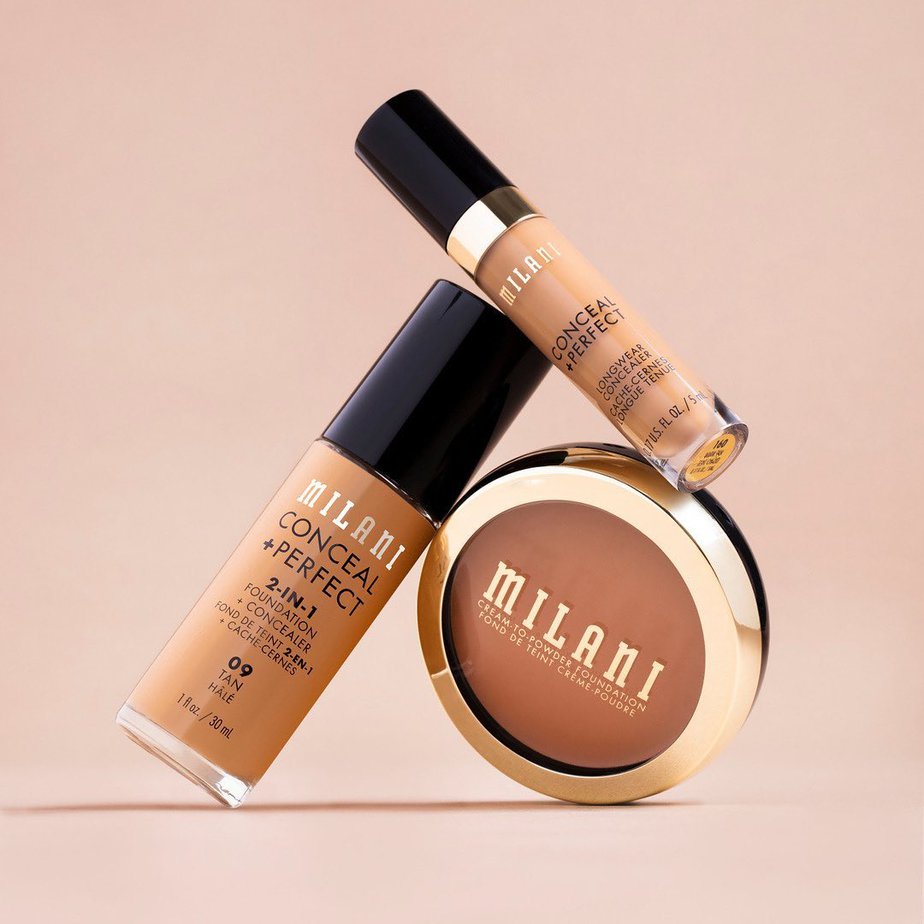
The main cruelty-free L’Oreal alternative I recommend is Milani. That’s because this is my favorite drugstore brand.
Milani offers so many amazing products for every makeup routine. They’re not only affordable, but they’re high-quality. I’ve used everything from Milani eyeshadows to blushes. The colors were always pigmented and lasted all day. I find Milani at CVS, and you can order products online from their website.
Milani is 100% cruelty-free, and they’re certified by PETA and Leaping Bunny. Keep in mind that they’re owned by Gryphon Investors. They don’t invest in many beauty brands, and I can’t find their cruelty-free status.
ELF
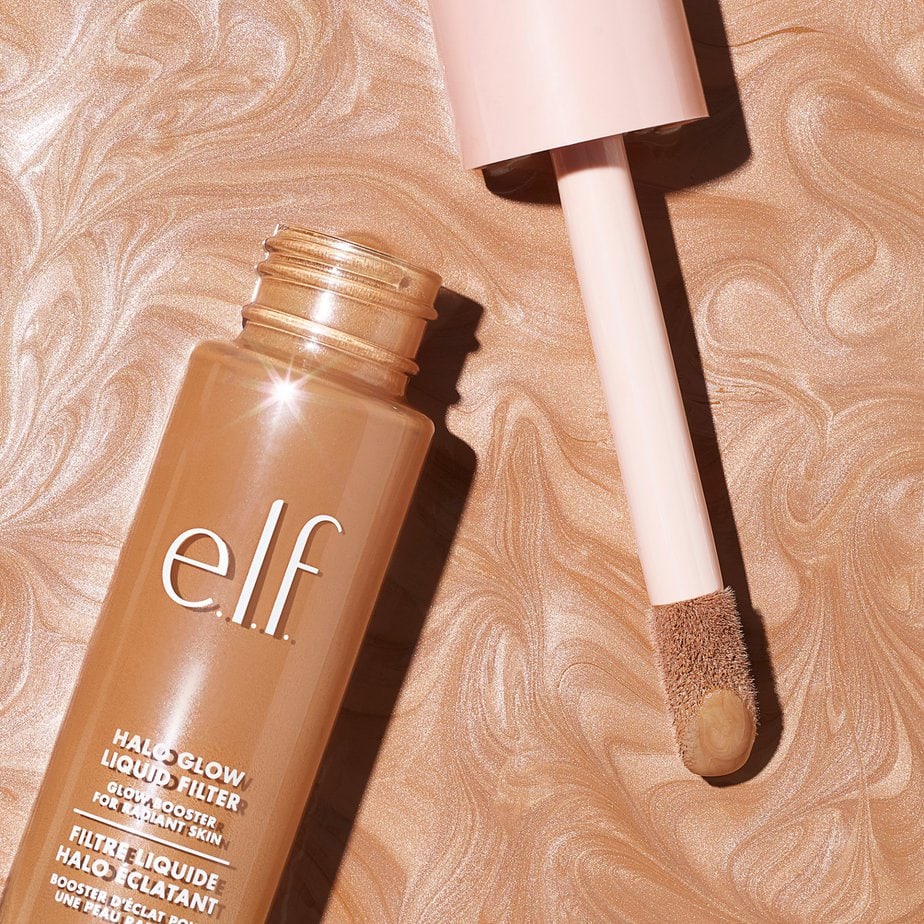
ELF is the next brand that I recommend. I’ve been using this brand for years, and I’m currently using their Jelly Pop Primer. All of the ELF products I’ve used have been effective. Their colors are always pigmented, and every product is long-lasting.
ELF is certified cruelty-free by PETA, and all of its products are vegan. I can’t find a parent company for this brand. I buy ELF products at Target, but I’ve also shopped for its products online. My only beef with this brand is its stringent return policy. I wouldn’t color match yourself with their foundations or concealers.
Colourpop
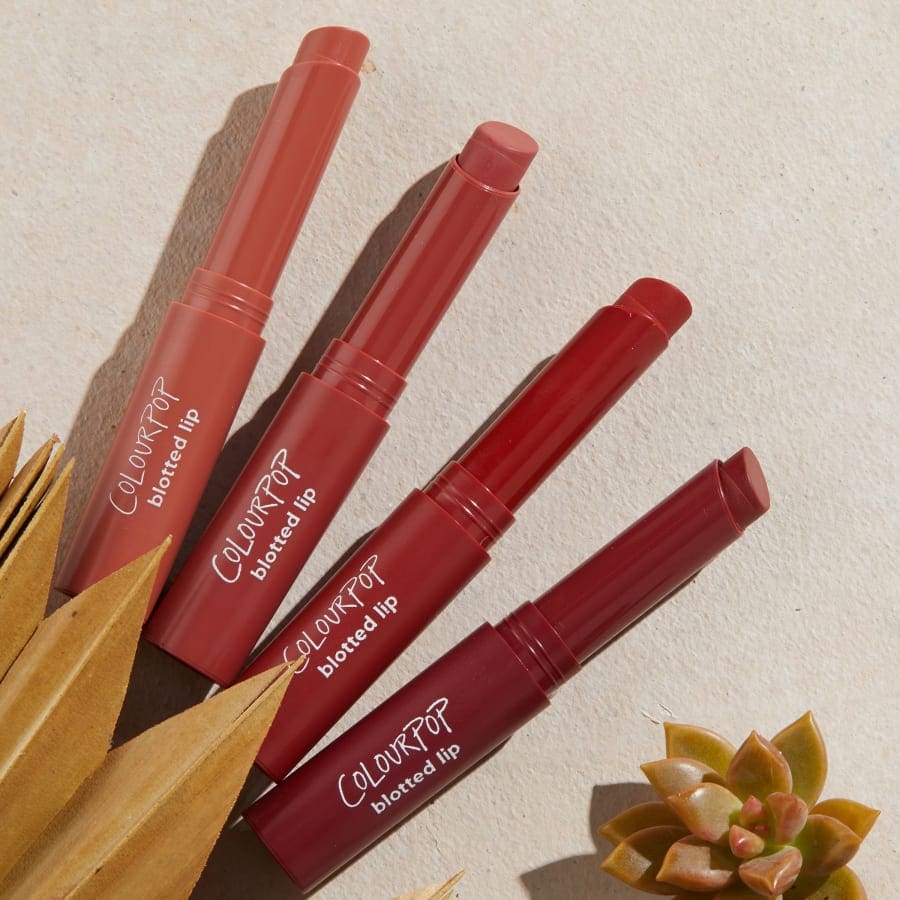
Colourpop has become one of my favorite brands. I have several of their palettes and different lip products. Everything I own from them is pigmented and long-lasting.
My new favorite palette is Blowin’ Smoke, a gorgeous smoky eye palette. The only downside with this brand is I can’t find their products in stores — I only buy Colourpop online. It’s not the biggest dealbreaker ever, I do most of my shopping online anyway. I just really hate waiting for my products! Colourpop is cruelty-free. They’re owned by Seed Beauty, which is also cruelty-free.
Pacifica
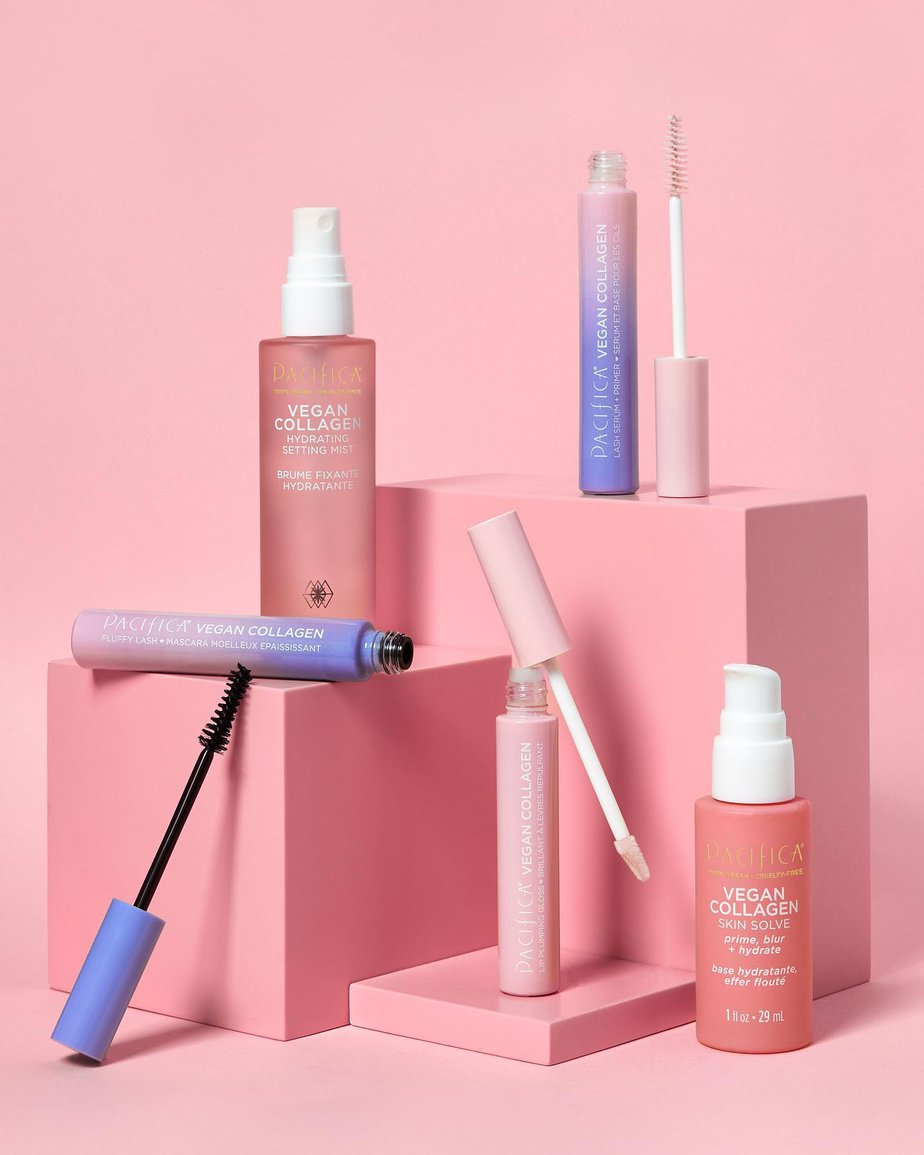
Pacifica is another one of my new favorite brands. Unlike many brands on this list, Pacifica makes both makeup and skincare products.
I’m using two of their skincare products now: their Vegan Collagen Moisturizer and Blow Baby Eye Bright Eye Cream. I’m in love with both products. The products are gentle enough for my sensitive skin and very effective. Plus, both products are fragrance-free which makes me happy. I get so excited for my nighttime beauty routine so I can use these products.
If you’re looking for an affordable beauty brand with great products, I definitely recommend this one. Keep in mind that I haven’t used their makeup yet, but I do plan on changing that! Pacifica is not only 100% cruelty-free, but they’re also completely vegan. I haven’t found a parent company for this brand. I buy their products at Target though you can also shop online at their website.
Milk Makeup
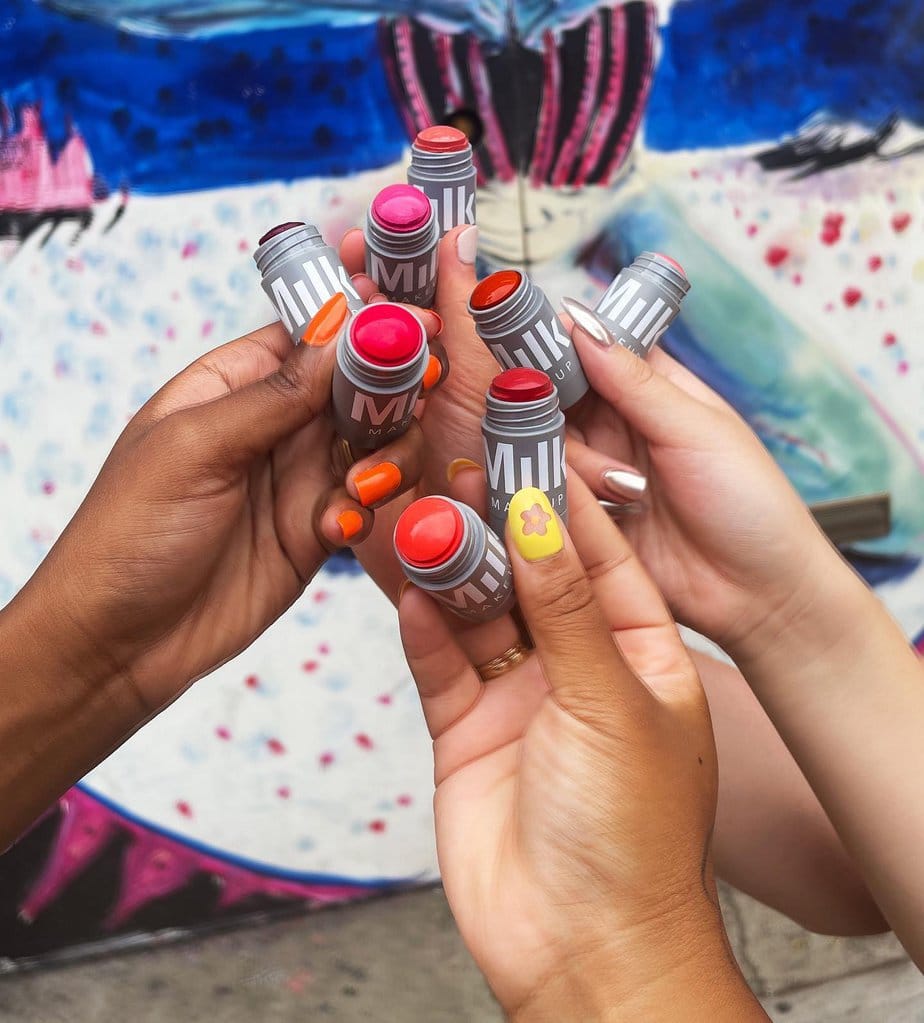
Milk Makeup is a prestigious middle-tier alternative to the brands I mentioned. Like L’Oreal, Milk Makeup offers both makeup and skincare products. I never tried their skincare, but I do like their makeup. I use the lip and cheek tint during the winter for some color on my face, when I’m too pale for bronzer. The color is a dusty rose, giving me the perfect amount of color that looks natural.
However, not all Milk products I liked. For example, their mascara is awful. It smudged, made my lashes clumpy, had a sticky formula, and smelled weird. I would stick to the more affordable alternatives first. Milk Makeup is a cruelty-free brand and is Leaping Bunny certified. They’re owned by Waldencast, which is cruelty-free and confirmed by PETA.
Faith in Nature
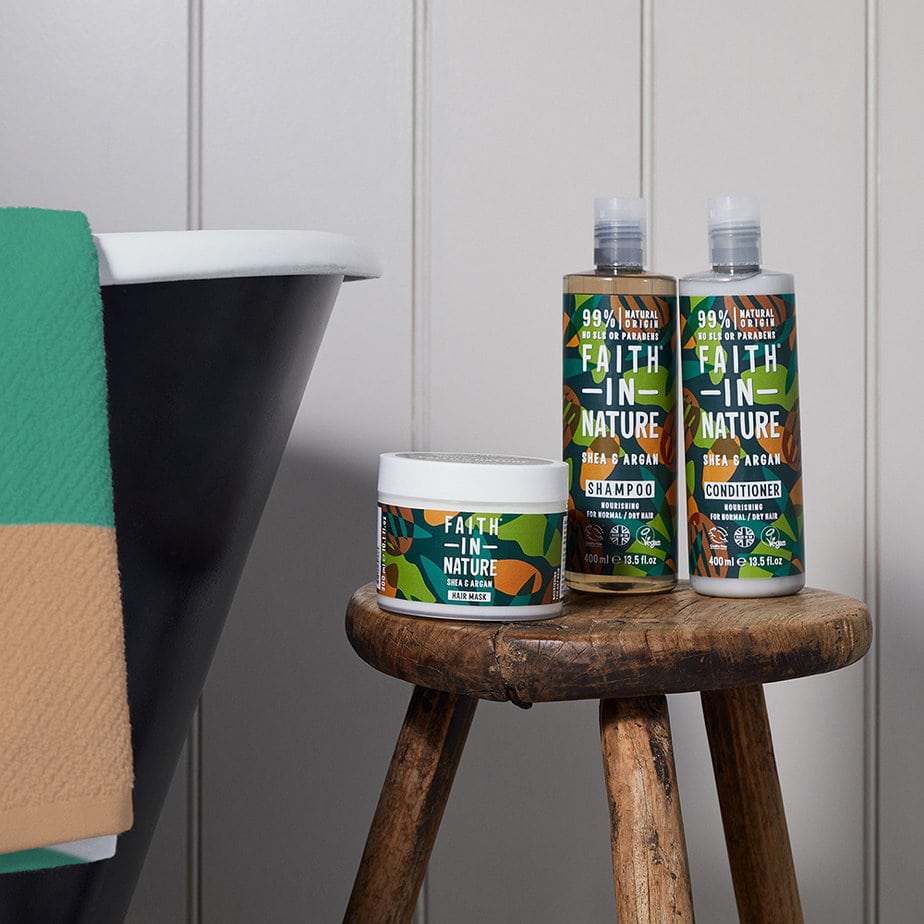
Faith in Nature is a natural hair, skin, and body care line in the UK. In addition to beauty products, this company also makes cleaning items. The company was founded by an NYC native who connected with nature and was fascinated with avocados. When the founder, Rivka, moved to the UK, she started Faith in Nature.
I never heard of this brand, though these products are sold in major American stores such as Target, Walmart, and Bed, Bath and Beyond. From reviews, I’m reading this is a great brand for those with sensitive skin. Looking at their prices at Target, nearly every product is less than $10, and this is a great dupe for some prestigious natural products I see at Sephora. Faith in Nature is cruelty-free, and they don’t have a parent company.
Weleda
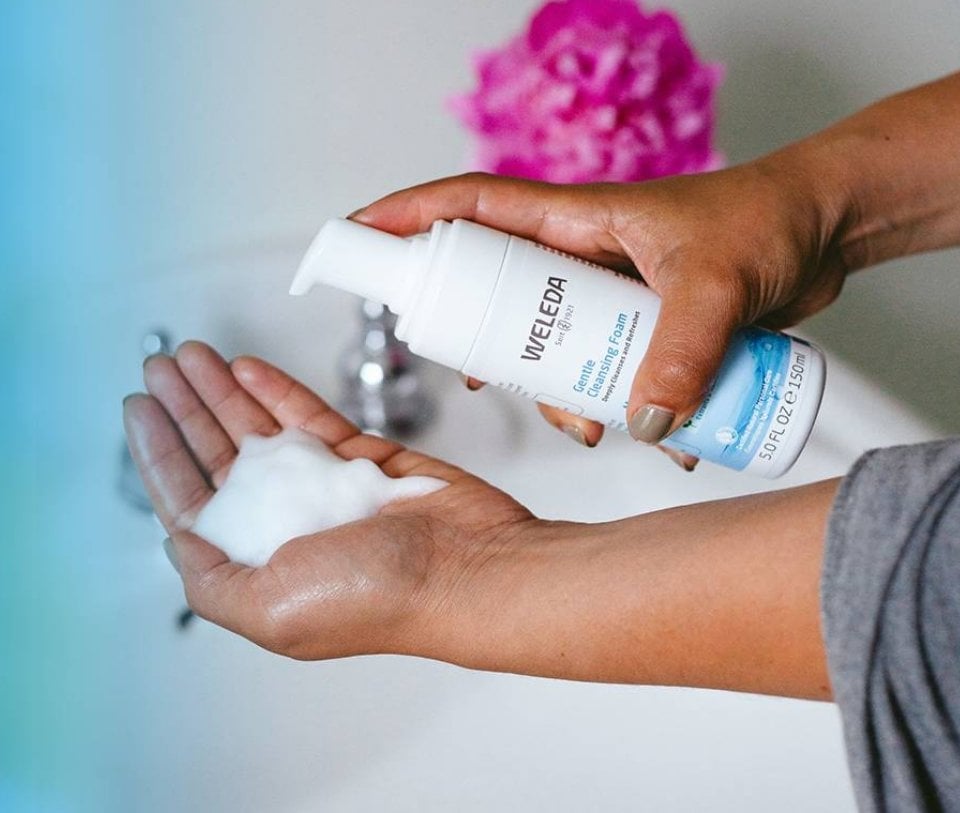
Weleda is another affordable skincare brand I never heard of. You can buy their products online, which are also available at Costco. I’m reading that their products are very effective and are a great dupe for expensive skincare products.
That said, I will say their products are pricier than others on this list. For example, their clarifying face wash is close to $20.
However, it’s still a better price than other products with the same level of effectiveness. In addition to being cruelty-free, Weleda is certified natural by NaTrue, and its products are produced ethically and within legal standards. Understand that their corporate structure is a little complex and I can’t find the cruelty-free status of their parent companies.
FAQs
Question: Can L’Oreal sell its products in China and not test on animals?
Answer: China has reduced animal testing but hasn’t reduced all required testing. Because L’Oreal sells hair dye, these products still have to undergo animal testing. L’Oreal has said few of their products undergo animal testing in China, but this is enough to make consumers avoid buying from China.
Question: What are all animal testing alternatives that L’Oreal uses?
Answer: While L’Oreal isn’t cruelty-free, they use alternative tests to animal testing. Episkin is one of the main ones, though they also use toxicology systems, molecular modeling, imaging techniques, and more.
Question: Why does L’Oreal still sell its products in China?
Answer: L’Oreal says its presence in China is helping local government regulations evolve outside of animal testing. Other names in the cruelty-free community say L’Oreal only cares about profits more than the well-being of animals. I say analyze these statements and make a decision for yourself.
Is L’Oreal Cruelty Free: Bottom Line
It’s unfortunate that L’Oreal, a global beauty powerhouse that owns countless companies, isn’t cruelty-free. While L’Oreal doesn’t conduct animal testing themselves, they’re not cruelty-free because China still requires animal testing on certain products like hair dye. While L’Oreal may offer vegan or natural products, they’re not a certified vegan or natural brand.
My main issue with L’Oreal is how misleading they are with these facts. I literally had to dig through multiple web pages on their website to discover the truth. Because of their misleading claims, I will no longer support L’Oreal or their brands (sorry Urban Decay!) until they exercise better transparency and/or stop testing their products on animals in China.
Recommended Reads:
- Loreal Foundation Line Guide: Which Foundation Is The Best For Your Skin Type?
- Loreal Infallible Pro Glow Foundation Review [2022]
- Is Tarte Cruelty Free: Should You Support This Popular Brand?
- Is Too Faced Cruelty Free – Should You Use This Brand’s Makeup Products?
- Is Urban Decay Cruelty Free: Does This Fearless Brand Test on Animals?
- Is NYX Cruelty Free
- Is Neutrogena Cruelty Free: Should You Continue Supporting This Drugstore Brand?
- Is Maybelline Cruelty Free: Should You Support This Company?
- Is Morphe Cruelty Free: Iconic Products Full of Controversy
- Is Glossier Cruelty Free: Should You Support This Trending Beauty Company?
